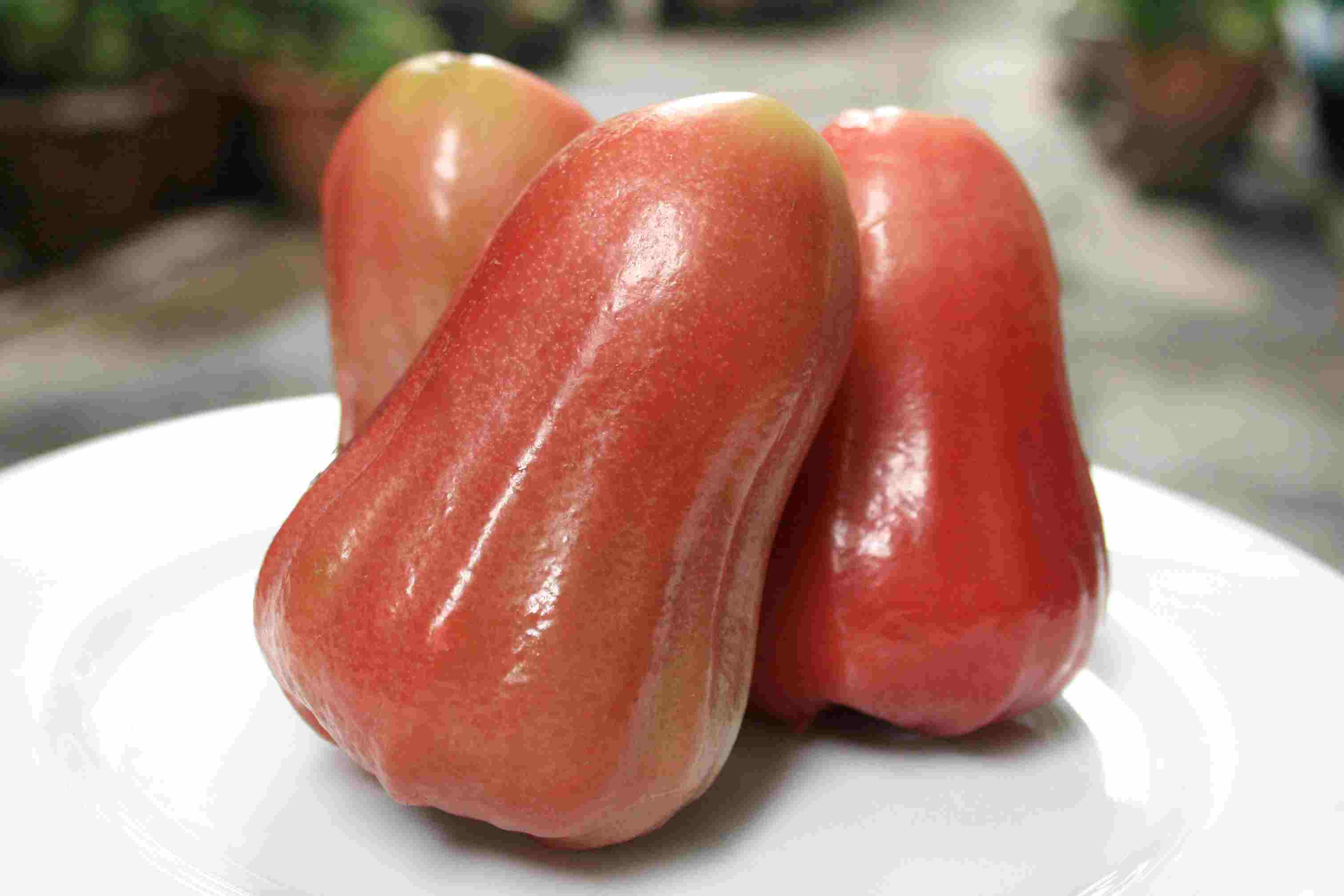
The fruit tree Syzygium jambos yields what is commonly called the water apple. The fruit is shaped like a small pear. The skin is thin and waxy, and the hollow core contains a small amount of inedible fluff. The flesh is a crisp and watery, and tastes like a cross between nashi and bell pepper, with a very mild rose scent and a slightly bitter aftertaste. In Southeast Asian countries, the fruit is frequently served with spiced sugar. There is no specific history of the use of water apple.
Water Apple, also known as Wax Jambu or Syzygium aqueum, is a tropical fruit that is native to Southeast Asia but is now widely cultivated in many tropical countries around the world. It is a member of the Myrtaceae family and is closely related to other popular fruits such as guava and the rose apple.
Water apples are small fruits that are round or oval in shape. They typically measure around 2-3 inches in diameter and have a smooth, waxy skin that is usually green or yellow in color. The flesh of the fruit is juicy and crisp, with a texture that is similar to that of a pear. The flavor of the fruit is sweet and refreshing, with a slight tanginess that is reminiscent of an apple. The fruit has a central seed that is about the size of a grape or a small cherry. The skin of the fruit is edible but can be tough and is often peeled before eating.
Water apples grow on medium-sized trees that can reach up to 15-20 feet in height. The trees are relatively fast-growing and can produce fruit within 3-4 years of planting. The trees are not overly demanding and can grow well in a wide range of soil types and conditions, although they do best in well-draining soil with plenty of sunlight and moderate rainfall. Water apples are also quite resistant to droughts and pests, making them a popular fruit for cultivation in many tropical regions.
The fruit is typically harvested when it is still green, as it ripens quickly and becomes soft and mushy if left on the tree for too long. Once harvested, the fruit can be stored for up to a week at room temperature, or for up to 2-3 weeks if refrigerated.
Water apples are a good source of several essential nutrients, including vitamin C, potassium, and fiber. A 100-gram serving of the fruit contains around 27 calories, making it a low-calorie snack option.
The nutrients found in water apples offer several potential health benefits. Vitamin C is essential for maintaining a healthy immune system and for promoting healthy skin, while potassium is important for regulating blood pressure and maintaining good heart health. The fiber found in the fruit is also beneficial for digestive health and can help to prevent constipation.
Water apples can be eaten fresh, either on their own or as part of a mixed fruit salad. In some tropical countries, the fruit is used to make jams, jellies, and other sweet treats. The fruit can also be used as a flavoring agent in drinks and desserts.
In some traditional medicine practices, water apples are used for their medicinal properties. The leaves are believed to have anti-inflammatory properties and can be used to treat skin conditions such as acne and eczema. The fruit is also believed to have antidiabetic properties and is sometimes used to help control blood glucose levels.